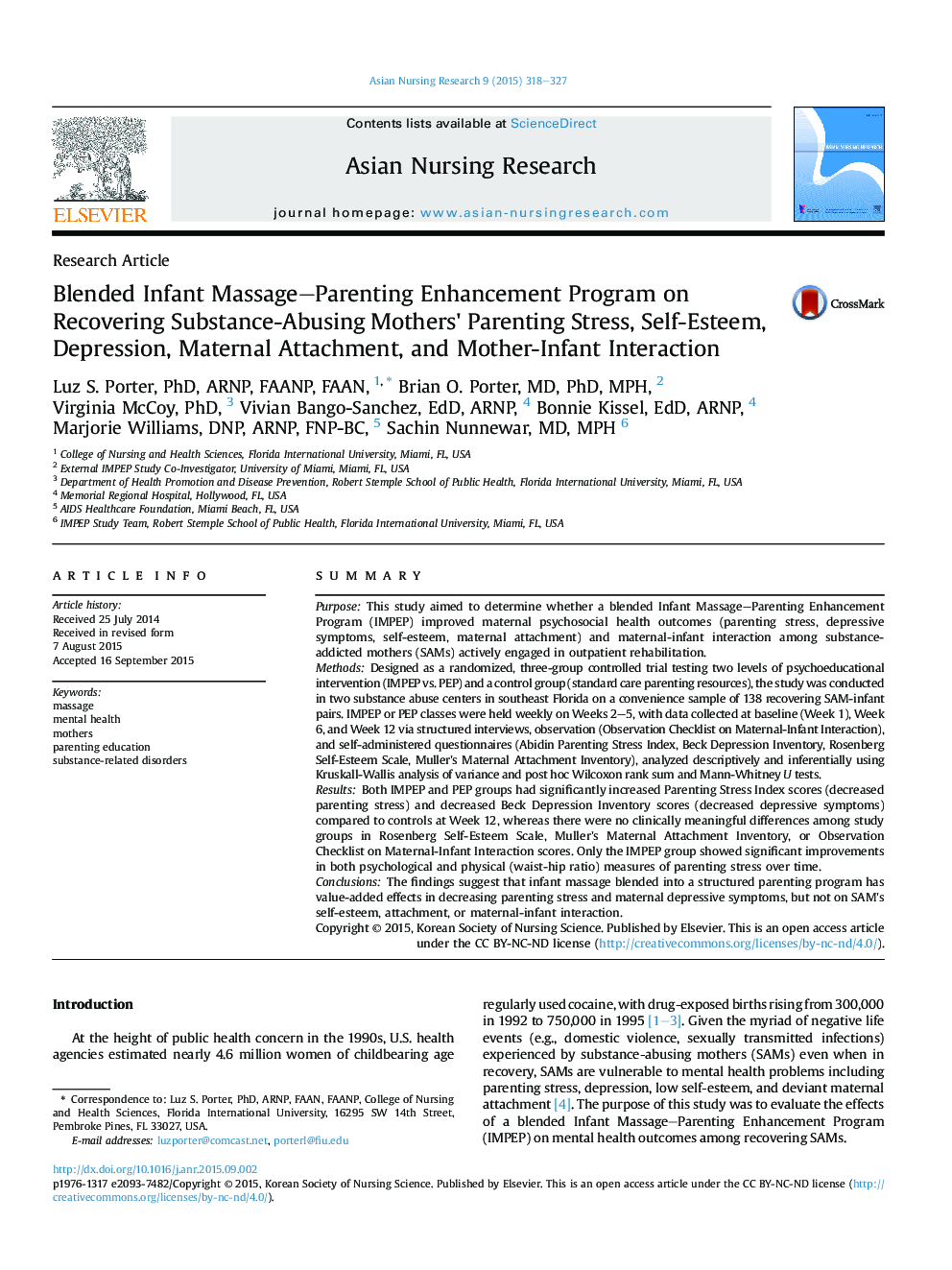| Article ID | Journal | Published Year | Pages | File Type |
|---|---|---|---|---|
| 2645519 | Asian Nursing Research | 2015 | 10 Pages |
SummaryPurposeThis study aimed to determine whether a blended Infant Massage–Parenting Enhancement Program (IMPEP) improved maternal psychosocial health outcomes (parenting stress, depressive symptoms, self-esteem, maternal attachment) and maternal-infant interaction among substance-addicted mothers (SAMs) actively engaged in outpatient rehabilitation.MethodsDesigned as a randomized, three-group controlled trial testing two levels of psychoeducational intervention (IMPEP vs. PEP) and a control group (standard care parenting resources), the study was conducted in two substance abuse centers in southeast Florida on a convenience sample of 138 recovering SAM-infant pairs. IMPEP or PEP classes were held weekly on Weeks 2–5, with data collected at baseline (Week 1), Week 6, and Week 12 via structured interviews, observation (Observation Checklist on Maternal-Infant Interaction), and self-administered questionnaires (Abidin Parenting Stress Index, Beck Depression Inventory, Rosenberg Self-Esteem Scale, Muller's Maternal Attachment Inventory), analyzed descriptively and inferentially using Kruskall-Wallis analysis of variance and post hoc Wilcoxon rank sum and Mann-Whitney U tests.ResultsBoth IMPEP and PEP groups had significantly increased Parenting Stress Index scores (decreased parenting stress) and decreased Beck Depression Inventory scores (decreased depressive symptoms) compared to controls at Week 12, whereas there were no clinically meaningful differences among study groups in Rosenberg Self-Esteem Scale, Muller's Maternal Attachment Inventory, or Observation Checklist on Maternal-Infant Interaction scores. Only the IMPEP group showed significant improvements in both psychological and physical (waist-hip ratio) measures of parenting stress over time.ConclusionsThe findings suggest that infant massage blended into a structured parenting program has value-added effects in decreasing parenting stress and maternal depressive symptoms, but not on SAM's self-esteem, attachment, or maternal-infant interaction.
